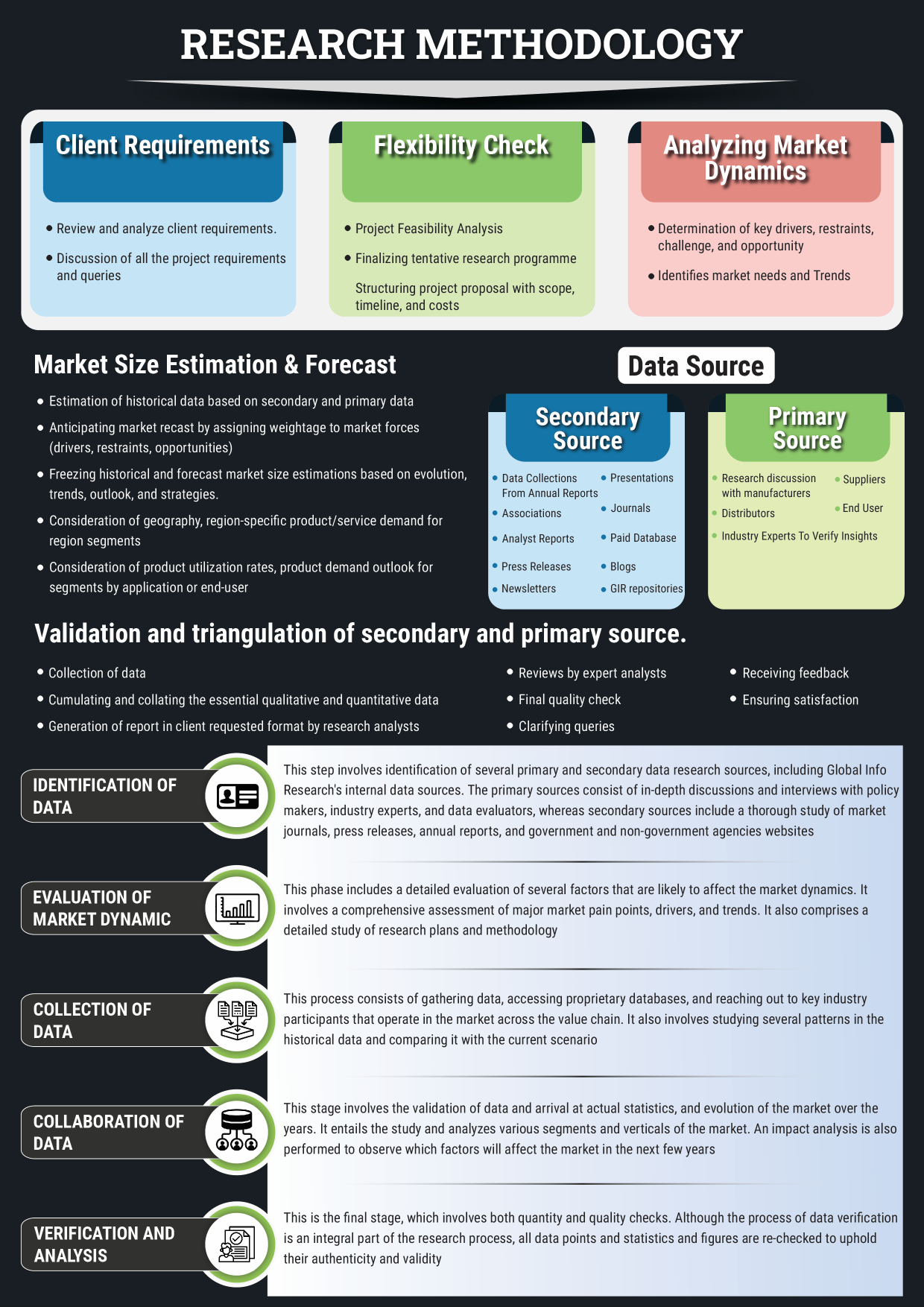Optical biometry devices are used for intraocular lens power calculations in clinical practice. Optical biometry is very accurate and non-invasive automated procedure that measures the characteristics of the eyes automatically.
Carl Zeiss is one of the most important global key manufacturers of optical biometry devices, holds a share of over 20%, other key manufacturers include Tomey, Topcon, etc. North America is the largest market, occupied for over 30 percent, followed by Europe. In terms of type, swept light source type is the largest segment, with a share of over 50%, and in terms of application, the hospitals segment holds a share of about 50 percent.
This report is a detailed and comprehensive analysis for global Optical Biometry Devices market. Both quantitative and qualitative analyses are presented by manufacturers, by region & country, by Type and by Application. As the market is constantly changing, this report explores the competition, supply and demand trends, as well as key factors that contribute to its changing demands across many markets. Company profiles and product examples of selected competitors, along with market share estimates of some of the selected leaders for the year 2023, are provided.
Key Features:
Global Optical Biometry Devices market size and forecasts, in consumption value ($ Million), sales quantity (Units), and average selling prices (US$/Unit), 2018-2029
Global Optical Biometry Devices market size and forecasts by region and country, in consumption value ($ Million), sales quantity (Units), and average selling prices (US$/Unit), 2018-2029
Global Optical Biometry Devices market size and forecasts, by Type and by Application, in consumption value ($ Million), sales quantity (Units), and average selling prices (US$/Unit), 2018-2029
Global Optical Biometry Devices market shares of main players, shipments in revenue ($ Million), sales quantity (Units), and ASP (US$/Unit), 2018-2023
The Primary Objectives in This Report Are:
To determine the size of the total market opportunity of global and key countries
To assess the growth potential for Optical Biometry Devices
To forecast future growth in each product and end-use market
To assess competitive factors affecting the marketplace
This report profiles key players in the global Optical Biometry Devices market based on the following parameters - company overview, production, value, price, gross margin, product portfolio, geographical presence, and key developments.
This report also provides key insights about market drivers, restraints, opportunities, new product launches or approvals, COVID-19 and Russia-Ukraine War Influence.
Key Market Players
Topcon
Carl Zeiss
Nidek
Haag-Streit
Tomey
Ziemer Ophthalmic Systems
MOVU
Suowei Electronic
OCULUS Optikgeräte
Segmentation By Type
White Interferometer Type
Swept Light Source Type
Segmentation By Application
Hospitals
Ophthalmology Clinics
Ambulatory Surgical Centers
Others
Segmentation By Region
North America (United States, Canada and Mexico)
Europe (Germany, France, United Kingdom, Russia, Italy, and Rest of Europe)
Asia-Pacific (China, Japan, Korea, India, Southeast Asia, and Australia)
South America (Brazil, Argentina, Colombia, and Rest of South America)
Middle East & Africa (Saudi Arabia, UAE, Egypt, South Africa, and Rest of Middle East & Africa)
Market SWOT Analysis
What are the strengths of the Optical Biometry Devices Market in 2025?
The optical biometry devices market is expected to see growth due to their non-invasive, accurate, and efficient measurements, enhancing patient outcomes in ophthalmic surgeries like cataract surgery. Advances in technology, like improved refractive error detection and integration with other diagnostic tools, will continue to fuel adoption in clinical settings. The growing geriatric population and the rising prevalence of eye diseases are additional driving factors.
What are the weaknesses of the Optical Biometry Devices Market in 2025?
Despite their advantages, optical biometry devices are expensive, which can limit accessibility in low-income regions or smaller healthcare facilities. The devices also require highly trained personnel for operation, and there can be variability in results due to factors like corneal opacity or other eye conditions, which may affect their accuracy in some patients.
What are the opportunities in the Optical Biometry Devices Market in 2025?
With increasing healthcare digitization and the adoption of AI, there are opportunities to integrate optical biometry devices with advanced data analytics for better precision in diagnostics and treatment planning. Additionally, expanding into emerging markets where ophthalmic care is growing could offer new avenues for market expansion.
What are the threats to the Optical Biometry Devices Market in 2025?
Regulatory challenges and the high cost of innovation could slow market penetration. Moreover, competition from alternative diagnostic technologies and potential economic downturns affecting healthcare budgets could also pose risks to market growth.
Market PESTEL Analysis
What are the political factors affecting the Optical Biometry Devices Market in 2025?
Political factors, such as government regulations on medical devices and healthcare policies, will play a significant role in shaping the market. Healthcare reforms in various countries may provide opportunities for increased funding or government initiatives aimed at improving access to advanced ophthalmic care. However, changes in regulations or stricter compliance standards could impact market entry and operational costs.
What are the economic factors affecting the Optical Biometry Devices Market in 2025?
Economic factors like the overall healthcare spending, reimbursement policies, and economic stability will influence the market. High costs of optical biometry devices can hinder adoption in price-sensitive markets, but ongoing economic growth and rising healthcare investments in developed and emerging markets may offset these challenges, leading to increased demand for advanced diagnostic devices.
What are the social factors affecting the Optical Biometry Devices Market in 2025?
With an aging global population and the increasing prevalence of vision-related disorders, there is a growing demand for effective diagnostic and treatment options. Public awareness campaigns and increased focus on eye health will likely drive the market, as patients and healthcare providers seek improved technologies for accurate assessments.
What are the technological factors affecting the Optical Biometry Devices Market in 2025?
Technological advancements such as AI-driven diagnostics, machine learning algorithms for enhanced accuracy, and integration with digital health ecosystems are transforming the optical biometry market. Continuous innovation in device design and functionality is crucial to maintaining competitive advantage and improving patient outcomes.
What are the environmental factors affecting the Optical Biometry Devices Market in 2025?
Environmental factors, like increasing focus on sustainability and eco-friendly manufacturing processes, will impact the market. Companies may need to adopt greener practices in device production and packaging to meet growing environmental standards and appeal to environmentally-conscious consumers and stakeholders.
What are the legal factors affecting the Optical Biometry Devices Market in 2025?
Legal factors, including product safety regulations, patent laws, and intellectual property protection, will influence the development and commercialization of optical biometry devices. Stringent regulatory frameworks in regions like the EU and the US could raise barriers to entry for new players but also ensure product quality and safety for consumers.
Market SIPOC Analysis
Who are the suppliers in the Optical Biometry Devices Market in 2025?
Suppliers include manufacturers of optical biometry devices, component suppliers for sensors, lenses, and software providers for diagnostic and measurement technologies. Key suppliers may also include research institutions and technology developers that contribute to the innovation of more accurate and efficient devices.
What are the inputs in the Optical Biometry Devices Market in 2025?
Inputs involve raw materials like optical lenses, sensors, and electronic components. Additionally, specialized software, research data for device development, skilled labor, and regulatory approvals are necessary to create and refine optical biometry devices.
What are the processes in the Optical Biometry Devices Market in 2025?
Processes include the design, development, and manufacturing of optical biometry devices, followed by rigorous testing for accuracy and safety. After production, devices undergo regulatory approval processes, marketing, and distribution. In clinical settings, devices are calibrated and integrated into patient diagnostics and surgical planning.
Who are the customers in the Optical Biometry Devices Market in 2025?
Customers include hospitals, eye care clinics, ophthalmologists, and healthcare institutions that require advanced tools for accurate eye measurements. Patients undergoing eye surgeries like cataract procedures and those in need of refractive error corrections also form a significant customer base.
What are the outputs in the Optical Biometry Devices Market in 2025?
The outputs are the finished optical biometry devices, including their associated software and features for precise measurements. These outputs contribute to better patient care by providing reliable diagnostics and supporting more accurate surgical planning and treatment decisions.
Market Porter's Five Forces
What is the threat of new entrants in the Optical Biometry Devices Market in 2025?
The threat of new entrants is moderate. While high capital investment, technological expertise, and regulatory compliance requirements act as barriers to entry, the growing demand for advanced optical biometry devices and emerging market opportunities may attract new players, especially those with innovative technologies or access to funding.
What is the bargaining power of suppliers in the Optical Biometry Devices Market in 2025?
The bargaining power of suppliers is moderate. Key components like high-precision sensors and lenses are specialized, which could give certain suppliers leverage. However, as the market grows, manufacturers may have more options for sourcing materials, which could reduce suppliers' power over time.
What is the bargaining power of buyers in the Optical Biometry Devices Market in 2025?
The bargaining power of buyers is moderate to high. Healthcare providers and institutions are increasingly looking for cost-effective and efficient devices. The availability of alternative diagnostic technologies could give buyers more options, but the high accuracy and specialized nature of optical biometry devices can limit the bargaining power of individual patients or smaller clinics.
What is the threat of substitutes in the Optical Biometry Devices Market in 2025?
The threat of substitutes is moderate. While alternative technologies such as ultrasound biometry exist, optical biometry offers non-invasive, highly accurate, and efficient solutions. However, advancements in competing technologies could pose a threat to the market if they provide similar or improved outcomes at a lower cost.
What is the intensity of competitive rivalry in the Optical Biometry Devices Market in 2025?
The intensity of competitive rivalry is high. The market is likely to see strong competition among established players, particularly in regions with high healthcare spending. Companies must constantly innovate, improve device accuracy, and reduce costs to stay ahead of competitors. Additionally, price sensitivity in certain markets may increase competition.
Market Upstream Analysis
What are the key raw materials required in the Optical Biometry Devices Market in 2025?
Key raw materials include high-precision optical lenses, sensors, and electronic components like microchips and processors. Additionally, advanced materials for display screens, housing, and software development tools are crucial for the functionality and durability of optical biometry devices.
Who are the key suppliers in the Optical Biometry Devices Market in 2025?
Key suppliers include manufacturers of optical components, sensor technology providers, and electronics companies that supply the necessary parts for device construction. Software developers and research institutions involved in the continuous innovation of measurement algorithms are also essential suppliers in the upstream supply chain.
What technological advancements are driving the upstream supply chain in the Optical Biometry Devices Market in 2025?
Technological advancements in sensor technology, miniaturization of components, and artificial intelligence are driving the upstream supply chain. Improved sensor accuracy, faster processing capabilities, and enhanced integration of AI-based diagnostic software are enabling more precise measurements and greater device functionality.
What are the challenges faced by suppliers in the Optical Biometry Devices Market in 2025?
Suppliers face challenges related to high production costs for precision components, the need for continuous innovation to meet increasing demand for accuracy, and regulatory compliance issues. Additionally, fluctuations in the availability and cost of raw materials, as well as technological integration challenges, can impact the supply chain.
How do regulatory requirements impact the upstream supply chain in the Optical Biometry Devices Market in 2025?
Regulatory requirements, such as device certifications and safety standards, significantly affect the upstream supply chain. Suppliers must comply with stringent regulatory frameworks for medical devices, which can result in longer development timelines, higher costs, and the need for specialized manufacturing processes. These regulations can create delays or limit the supply of certain materials.
Market Midstream Analysis
What are the key processes in the Midstream Optical Biometry Devices Market in 2025?
Key processes include the assembly, testing, and calibration of optical biometry devices. After components are sourced from suppliers, they are integrated into the final product, ensuring that the device meets required accuracy and safety standards. This stage also involves software development and refinement, regulatory approvals, and quality control procedures.
Who are the main players in the Midstream Optical Biometry Devices Market in 2025?
Main players in the midstream market include manufacturers who assemble and test optical biometry devices, as well as companies involved in software development, integration, and regulatory compliance. These include both established medical device manufacturers and specialized companies focused on optical and measurement technologies.
What are the technological advancements shaping the Midstream Optical Biometry Devices Market in 2025?
Technological advancements such as AI integration for data analysis, improved sensors for more precise measurements, and better display technologies are significantly impacting the midstream market. Additionally, advancements in digital health and cloud-based systems for storing and analyzing data are enhancing the functionality of optical biometry devices during this phase.
What are the challenges in the Midstream Optical Biometry Devices Market in 2025?
Challenges in the midstream market include ensuring consistency and accuracy in device assembly, meeting regulatory requirements across different regions, and managing supply chain disruptions for high-precision components. Another challenge is the ongoing need for continuous innovation to stay ahead of competitors and integrate the latest technologies.
How does the regulatory environment affect the Midstream Optical Biometry Devices Market in 2025?
The regulatory environment plays a significant role in the midstream market, as manufacturers must adhere to strict standards for medical devices. This includes meeting certification requirements, ensuring compliance with international regulations (such as the FDA in the U.S. or CE marking in Europe), and navigating the complex process of obtaining approval for new technologies or device updates.
Market Downstream Analysis
What are the key distribution channels in the Optical Biometry Devices Market in 2025?
Key distribution channels include direct sales to hospitals and eye care clinics, partnerships with medical device distributors, and online platforms for selling diagnostic equipment. Additionally, sales through established networks with ophthalmology associations and medical conferences also serve as important channels for reaching potential customers.
Who are the main customers in the Downstream Optical Biometry Devices Market in 2025?
Main customers include ophthalmologists, ophthalmic surgeons, hospitals, specialized eye care clinics, and research institutions. Additionally, government health organizations and large healthcare providers are key customers, especially in developed markets where advanced diagnostic technologies are in high demand.
What are the technological trends influencing the Downstream Optical Biometry Devices Market in 2025?
Technological trends include the integration of AI and machine learning to improve diagnostic accuracy and device usability, the incorporation of telemedicine platforms for remote consultations, and advancements in cloud-based data storage for seamless patient management. These trends help streamline workflow in clinical settings and enhance decision-making.
What are the challenges in the Downstream Optical Biometry Devices Market in 2025?
Challenges in the downstream market include the high cost of optical biometry devices, which can limit access for smaller clinics or in lower-income regions. Additionally, training healthcare professionals to operate these advanced devices, as well as ensuring ongoing customer support and maintenance, can be resource-intensive for distributors and manufacturers.
How does the regulatory environment impact the Downstream Optical Biometry Devices Market in 2025?
The regulatory environment impacts the downstream market by dictating which devices are approved for sale in different regions. Compliance with medical device regulations, safety standards, and post-market surveillance requirements can affect the speed of product distribution and the cost structure for both manufacturers and distributors.
Chapter 1, to describe Optical Biometry Devices product scope, market overview, market estimation caveats and base year.
Chapter 2, to profile the top manufacturers of Optical Biometry Devices, with price, sales, revenue and global market share of Optical Biometry Devices from 2018 to 2023.
Chapter 3, the Optical Biometry Devices competitive situation, sales quantity, revenue and global market share of top manufacturers are analyzed emphatically by landscape contrast.
Chapter 4, the Optical Biometry Devices breakdown data are shown at the regional level, to show the sales quantity, consumption value and growth by regions, from 2018 to 2029.
Chapter 5 and 6, to segment the sales by Type and application, with sales market share and growth rate by type, application, from 2018 to 2029.
Chapter 7, 8, 9, 10 and 11, to break the sales data at the country level, with sales quantity, consumption value and market share for key countries in the world, from 2017 to 2022.and Optical Biometry Devices market forecast, by regions, type and application, with sales and revenue, from 2024 to 2029.
Chapter 12, market dynamics, drivers, restraints, trends, Porters Five Forces analysis, and Influence of COVID-19 and Russia-Ukraine War.
Chapter 13, the key raw materials and key suppliers, and industry chain of Optical Biometry Devices.
Chapter 14 and 15, to describe Optical Biometry Devices sales channel, distributors, customers, research findings and conclusion.
1 Market Overview
1.1 Product Overview and Scope of Optical Biometry Devices
1.2 Market Estimation Caveats and Base Year
1.3 Market Analysis by Type
1.3.1 Overview: Global Optical Biometry Devices Consumption Value by Type: 2018 Versus 2022 Versus 2029
1.3.2 White Interferometer Type
1.3.3 Swept Light Source Type
1.4 Market Analysis by Application
1.4.1 Overview: Global Optical Biometry Devices Consumption Value by Application: 2018 Versus 2022 Versus 2029
1.4.2 Hospitals
1.4.3 Ophthalmology Clinics
1.4.4 Ambulatory Surgical Centers
1.4.5 Others
1.5 Global Optical Biometry Devices Market Size & Forecast
1.5.1 Global Optical Biometry Devices Consumption Value (2018 & 2022 & 2029)
1.5.2 Global Optical Biometry Devices Sales Quantity (2018-2029)
1.5.3 Global Optical Biometry Devices Average Price (2018-2029)
2 Manufacturers Profiles
2.1 Topcon
2.1.1 Topcon Details
2.1.2 Topcon Major Business
2.1.3 Topcon Optical Biometry Devices Product and Services
2.1.4 Topcon Optical Biometry Devices Sales Quantity, Average Price, Revenue, Gross Margin and Market Share (2018-2023)
2.1.5 Topcon Recent Developments/Updates
2.2 Carl Zeiss
2.2.1 Carl Zeiss Details
2.2.2 Carl Zeiss Major Business
2.2.3 Carl Zeiss Optical Biometry Devices Product and Services
2.2.4 Carl Zeiss Optical Biometry Devices Sales Quantity, Average Price, Revenue, Gross Margin and Market Share (2018-2023)
2.2.5 Carl Zeiss Recent Developments/Updates
2.3 Nidek
2.3.1 Nidek Details
2.3.2 Nidek Major Business
2.3.3 Nidek Optical Biometry Devices Product and Services
2.3.4 Nidek Optical Biometry Devices Sales Quantity, Average Price, Revenue, Gross Margin and Market Share (2018-2023)
2.3.5 Nidek Recent Developments/Updates
2.4 Haag-Streit
2.4.1 Haag-Streit Details
2.4.2 Haag-Streit Major Business
2.4.3 Haag-Streit Optical Biometry Devices Product and Services
2.4.4 Haag-Streit Optical Biometry Devices Sales Quantity, Average Price, Revenue, Gross Margin and Market Share (2018-2023)
2.4.5 Haag-Streit Recent Developments/Updates
2.5 Tomey
2.5.1 Tomey Details
2.5.2 Tomey Major Business
2.5.3 Tomey Optical Biometry Devices Product and Services
2.5.4 Tomey Optical Biometry Devices Sales Quantity, Average Price, Revenue, Gross Margin and Market Share (2018-2023)
2.5.5 Tomey Recent Developments/Updates
2.6 Ziemer Ophthalmic Systems
2.6.1 Ziemer Ophthalmic Systems Details
2.6.2 Ziemer Ophthalmic Systems Major Business
2.6.3 Ziemer Ophthalmic Systems Optical Biometry Devices Product and Services
2.6.4 Ziemer Ophthalmic Systems Optical Biometry Devices Sales Quantity, Average Price, Revenue, Gross Margin and Market Share (2018-2023)
2.6.5 Ziemer Ophthalmic Systems Recent Developments/Updates
2.7 MOVU
2.7.1 MOVU Details
2.7.2 MOVU Major Business
2.7.3 MOVU Optical Biometry Devices Product and Services
2.7.4 MOVU Optical Biometry Devices Sales Quantity, Average Price, Revenue, Gross Margin and Market Share (2018-2023)
2.7.5 MOVU Recent Developments/Updates
2.8 Suowei Electronic
2.8.1 Suowei Electronic Details
2.8.2 Suowei Electronic Major Business
2.8.3 Suowei Electronic Optical Biometry Devices Product and Services
2.8.4 Suowei Electronic Optical Biometry Devices Sales Quantity, Average Price, Revenue, Gross Margin and Market Share (2018-2023)
2.8.5 Suowei Electronic Recent Developments/Updates
2.9 OCULUS Optikgeräte
2.9.1 OCULUS Optikgeräte Details
2.9.2 OCULUS Optikgeräte Major Business
2.9.3 OCULUS Optikgeräte Optical Biometry Devices Product and Services
2.9.4 OCULUS Optikgeräte Optical Biometry Devices Sales Quantity, Average Price, Revenue, Gross Margin and Market Share (2018-2023)
2.9.5 OCULUS Optikgeräte Recent Developments/Updates
3 Competitive Environment: Optical Biometry Devices by Manufacturer
3.1 Global Optical Biometry Devices Sales Quantity by Manufacturer (2018-2023)
3.2 Global Optical Biometry Devices Revenue by Manufacturer (2018-2023)
3.3 Global Optical Biometry Devices Average Price by Manufacturer (2018-2023)
3.4 Market Share Analysis (2022)
3.4.1 Producer Shipments of Optical Biometry Devices by Manufacturer Revenue ($MM) and Market Share (%): 2022
3.4.2 Top 3 Optical Biometry Devices Manufacturer Market Share in 2022
3.4.2 Top 6 Optical Biometry Devices Manufacturer Market Share in 2022
3.5 Optical Biometry Devices Market: Overall Company Footprint Analysis
3.5.1 Optical Biometry Devices Market: Region Footprint
3.5.2 Optical Biometry Devices Market: Company Product Type Footprint
3.5.3 Optical Biometry Devices Market: Company Product Application Footprint
3.6 New Market Entrants and Barriers to Market Entry
3.7 Mergers, Acquisition, Agreements, and Collaborations
4 Consumption Analysis by Region
4.1 Global Optical Biometry Devices Market Size by Region
4.1.1 Global Optical Biometry Devices Sales Quantity by Region (2018-2029)
4.1.2 Global Optical Biometry Devices Consumption Value by Region (2018-2029)
4.1.3 Global Optical Biometry Devices Average Price by Region (2018-2029)
4.2 North America Optical Biometry Devices Consumption Value (2018-2029)
4.3 Europe Optical Biometry Devices Consumption Value (2018-2029)
4.4 Asia-Pacific Optical Biometry Devices Consumption Value (2018-2029)
4.5 South America Optical Biometry Devices Consumption Value (2018-2029)
4.6 Middle East and Africa Optical Biometry Devices Consumption Value (2018-2029)
5 Market Segment by Type
5.1 Global Optical Biometry Devices Sales Quantity by Type (2018-2029)
5.2 Global Optical Biometry Devices Consumption Value by Type (2018-2029)
5.3 Global Optical Biometry Devices Average Price by Type (2018-2029)
6 Market Segment by Application
6.1 Global Optical Biometry Devices Sales Quantity by Application (2018-2029)
6.2 Global Optical Biometry Devices Consumption Value by Application (2018-2029)
6.3 Global Optical Biometry Devices Average Price by Application (2018-2029)
7 North America
7.1 North America Optical Biometry Devices Sales Quantity by Type (2018-2029)
7.2 North America Optical Biometry Devices Sales Quantity by Application (2018-2029)
7.3 North America Optical Biometry Devices Market Size by Country
7.3.1 North America Optical Biometry Devices Sales Quantity by Country (2018-2029)
7.3.2 North America Optical Biometry Devices Consumption Value by Country (2018-2029)
7.3.3 United States Market Size and Forecast (2018-2029)
7.3.4 Canada Market Size and Forecast (2018-2029)
7.3.5 Mexico Market Size and Forecast (2018-2029)
8 Europe
8.1 Europe Optical Biometry Devices Sales Quantity by Type (2018-2029)
8.2 Europe Optical Biometry Devices Sales Quantity by Application (2018-2029)
8.3 Europe Optical Biometry Devices Market Size by Country
8.3.1 Europe Optical Biometry Devices Sales Quantity by Country (2018-2029)
8.3.2 Europe Optical Biometry Devices Consumption Value by Country (2018-2029)
8.3.3 Germany Market Size and Forecast (2018-2029)
8.3.4 France Market Size and Forecast (2018-2029)
8.3.5 United Kingdom Market Size and Forecast (2018-2029)
8.3.6 Russia Market Size and Forecast (2018-2029)
8.3.7 Italy Market Size and Forecast (2018-2029)
9 Asia-Pacific
9.1 Asia-Pacific Optical Biometry Devices Sales Quantity by Type (2018-2029)
9.2 Asia-Pacific Optical Biometry Devices Sales Quantity by Application (2018-2029)
9.3 Asia-Pacific Optical Biometry Devices Market Size by Region
9.3.1 Asia-Pacific Optical Biometry Devices Sales Quantity by Region (2018-2029)
9.3.2 Asia-Pacific Optical Biometry Devices Consumption Value by Region (2018-2029)
9.3.3 China Market Size and Forecast (2018-2029)
9.3.4 Japan Market Size and Forecast (2018-2029)
9.3.5 Korea Market Size and Forecast (2018-2029)
9.3.6 India Market Size and Forecast (2018-2029)
9.3.7 Southeast Asia Market Size and Forecast (2018-2029)
9.3.8 Australia Market Size and Forecast (2018-2029)
10 South America
10.1 South America Optical Biometry Devices Sales Quantity by Type (2018-2029)
10.2 South America Optical Biometry Devices Sales Quantity by Application (2018-2029)
10.3 South America Optical Biometry Devices Market Size by Country
10.3.1 South America Optical Biometry Devices Sales Quantity by Country (2018-2029)
10.3.2 South America Optical Biometry Devices Consumption Value by Country (2018-2029)
10.3.3 Brazil Market Size and Forecast (2018-2029)
10.3.4 Argentina Market Size and Forecast (2018-2029)
11 Middle East & Africa
11.1 Middle East & Africa Optical Biometry Devices Sales Quantity by Type (2018-2029)
11.2 Middle East & Africa Optical Biometry Devices Sales Quantity by Application (2018-2029)
11.3 Middle East & Africa Optical Biometry Devices Market Size by Country
11.3.1 Middle East & Africa Optical Biometry Devices Sales Quantity by Country (2018-2029)
11.3.2 Middle East & Africa Optical Biometry Devices Consumption Value by Country (2018-2029)
11.3.3 Turkey Market Size and Forecast (2018-2029)
11.3.4 Egypt Market Size and Forecast (2018-2029)
11.3.5 Saudi Arabia Market Size and Forecast (2018-2029)
11.3.6 South Africa Market Size and Forecast (2018-2029)
12 Market Dynamics
12.1 Optical Biometry Devices Market Drivers
12.2 Optical Biometry Devices Market Restraints
12.3 Optical Biometry Devices Trends Analysis
12.4 Porters Five Forces Analysis
12.4.1 Threat of New Entrants
12.4.2 Bargaining Power of Suppliers
12.4.3 Bargaining Power of Buyers
12.4.4 Threat of Substitutes
12.4.5 Competitive Rivalry
12.5 Influence of COVID-19 and Russia-Ukraine War
12.5.1 Influence of COVID-19
12.5.2 Influence of Russia-Ukraine War
13 Raw Material and Industry Chain
13.1 Raw Material of Optical Biometry Devices and Key Manufacturers
13.2 Manufacturing Costs Percentage of Optical Biometry Devices
13.3 Optical Biometry Devices Production Process
13.4 Optical Biometry Devices Industrial Chain
14 Shipments by Distribution Channel
14.1 Sales Channel
14.1.1 Direct to End-User
14.1.2 Distributors
14.2 Optical Biometry Devices Typical Distributors
14.3 Optical Biometry Devices Typical Customers
15 Research Findings and Conclusion
16 Appendix
16.1 Methodology
16.2 Research Process and Data Source
16.3 Disclaimer
List of Tables
Table 1. Global Optical Biometry Devices Consumption Value by Type, (USD Million), 2018 & 2022 & 2029
Table 2. Global Optical Biometry Devices Consumption Value by Application, (USD Million), 2018 & 2022 & 2029
Table 3. Topcon Basic Information, Manufacturing Base and Competitors
Table 4. Topcon Major Business
Table 5. Topcon Optical Biometry Devices Product and Services
Table 6. Topcon Optical Biometry Devices Sales Quantity (Units), Average Price (US$/Unit), Revenue (USD Million), Gross Margin and Market Share (2018-2023)
Table 7. Topcon Recent Developments/Updates
Table 8. Carl Zeiss Basic Information, Manufacturing Base and Competitors
Table 9. Carl Zeiss Major Business
Table 10. Carl Zeiss Optical Biometry Devices Product and Services
Table 11. Carl Zeiss Optical Biometry Devices Sales Quantity (Units), Average Price (US$/Unit), Revenue (USD Million), Gross Margin and Market Share (2018-2023)
Table 12. Carl Zeiss Recent Developments/Updates
Table 13. Nidek Basic Information, Manufacturing Base and Competitors
Table 14. Nidek Major Business
Table 15. Nidek Optical Biometry Devices Product and Services
Table 16. Nidek Optical Biometry Devices Sales Quantity (Units), Average Price (US$/Unit), Revenue (USD Million), Gross Margin and Market Share (2018-2023)
Table 17. Nidek Recent Developments/Updates
Table 18. Haag-Streit Basic Information, Manufacturing Base and Competitors
Table 19. Haag-Streit Major Business
Table 20. Haag-Streit Optical Biometry Devices Product and Services
Table 21. Haag-Streit Optical Biometry Devices Sales Quantity (Units), Average Price (US$/Unit), Revenue (USD Million), Gross Margin and Market Share (2018-2023)
Table 22. Haag-Streit Recent Developments/Updates
Table 23. Tomey Basic Information, Manufacturing Base and Competitors
Table 24. Tomey Major Business
Table 25. Tomey Optical Biometry Devices Product and Services
Table 26. Tomey Optical Biometry Devices Sales Quantity (Units), Average Price (US$/Unit), Revenue (USD Million), Gross Margin and Market Share (2018-2023)
Table 27. Tomey Recent Developments/Updates
Table 28. Ziemer Ophthalmic Systems Basic Information, Manufacturing Base and Competitors
Table 29. Ziemer Ophthalmic Systems Major Business
Table 30. Ziemer Ophthalmic Systems Optical Biometry Devices Product and Services
Table 31. Ziemer Ophthalmic Systems Optical Biometry Devices Sales Quantity (Units), Average Price (US$/Unit), Revenue (USD Million), Gross Margin and Market Share (2018-2023)
Table 32. Ziemer Ophthalmic Systems Recent Developments/Updates
Table 33. MOVU Basic Information, Manufacturing Base and Competitors
Table 34. MOVU Major Business
Table 35. MOVU Optical Biometry Devices Product and Services
Table 36. MOVU Optical Biometry Devices Sales Quantity (Units), Average Price (US$/Unit), Revenue (USD Million), Gross Margin and Market Share (2018-2023)
Table 37. MOVU Recent Developments/Updates
Table 38. Suowei Electronic Basic Information, Manufacturing Base and Competitors
Table 39. Suowei Electronic Major Business
Table 40. Suowei Electronic Optical Biometry Devices Product and Services
Table 41. Suowei Electronic Optical Biometry Devices Sales Quantity (Units), Average Price (US$/Unit), Revenue (USD Million), Gross Margin and Market Share (2018-2023)
Table 42. Suowei Electronic Recent Developments/Updates
Table 43. OCULUS Optikgeräte Basic Information, Manufacturing Base and Competitors
Table 44. OCULUS Optikgeräte Major Business
Table 45. OCULUS Optikgeräte Optical Biometry Devices Product and Services
Table 46. OCULUS Optikgeräte Optical Biometry Devices Sales Quantity (Units), Average Price (US$/Unit), Revenue (USD Million), Gross Margin and Market Share (2018-2023)
Table 47. OCULUS Optikgeräte Recent Developments/Updates
Table 48. Global Optical Biometry Devices Sales Quantity by Manufacturer (2018-2023) & (Units)
Table 49. Global Optical Biometry Devices Revenue by Manufacturer (2018-2023) & (USD Million)
Table 50. Global Optical Biometry Devices Average Price by Manufacturer (2018-2023) & (US$/Unit)
Table 51. Market Position of Manufacturers in Optical Biometry Devices, (Tier 1, Tier 2, and Tier 3), Based on Consumption Value in 2022
Table 52. Head Office and Optical Biometry Devices Production Site of Key Manufacturer
Table 53. Optical Biometry Devices Market: Company Product Type Footprint
Table 54. Optical Biometry Devices Market: Company Product Application Footprint
Table 55. Optical Biometry Devices New Market Entrants and Barriers to Market Entry
Table 56. Optical Biometry Devices Mergers, Acquisition, Agreements, and Collaborations
Table 57. Global Optical Biometry Devices Sales Quantity by Region (2018-2023) & (Units)
Table 58. Global Optical Biometry Devices Sales Quantity by Region (2024-2029) & (Units)
Table 59. Global Optical Biometry Devices Consumption Value by Region (2018-2023) & (USD Million)
Table 60. Global Optical Biometry Devices Consumption Value by Region (2024-2029) & (USD Million)
Table 61. Global Optical Biometry Devices Average Price by Region (2018-2023) & (US$/Unit)
Table 62. Global Optical Biometry Devices Average Price by Region (2024-2029) & (US$/Unit)
Table 63. Global Optical Biometry Devices Sales Quantity by Type (2018-2023) & (Units)
Table 64. Global Optical Biometry Devices Sales Quantity by Type (2024-2029) & (Units)
Table 65. Global Optical Biometry Devices Consumption Value by Type (2018-2023) & (USD Million)
Table 66. Global Optical Biometry Devices Consumption Value by Type (2024-2029) & (USD Million)
Table 67. Global Optical Biometry Devices Average Price by Type (2018-2023) & (US$/Unit)
Table 68. Global Optical Biometry Devices Average Price by Type (2024-2029) & (US$/Unit)
Table 69. Global Optical Biometry Devices Sales Quantity by Application (2018-2023) & (Units)
Table 70. Global Optical Biometry Devices Sales Quantity by Application (2024-2029) & (Units)
Table 71. Global Optical Biometry Devices Consumption Value by Application (2018-2023) & (USD Million)
Table 72. Global Optical Biometry Devices Consumption Value by Application (2024-2029) & (USD Million)
Table 73. Global Optical Biometry Devices Average Price by Application (2018-2023) & (US$/Unit)
Table 74. Global Optical Biometry Devices Average Price by Application (2024-2029) & (US$/Unit)
Table 75. North America Optical Biometry Devices Sales Quantity by Type (2018-2023) & (Units)
Table 76. North America Optical Biometry Devices Sales Quantity by Type (2024-2029) & (Units)
Table 77. North America Optical Biometry Devices Sales Quantity by Application (2018-2023) & (Units)
Table 78. North America Optical Biometry Devices Sales Quantity by Application (2024-2029) & (Units)
Table 79. North America Optical Biometry Devices Sales Quantity by Country (2018-2023) & (Units)
Table 80. North America Optical Biometry Devices Sales Quantity by Country (2024-2029) & (Units)
Table 81. North America Optical Biometry Devices Consumption Value by Country (2018-2023) & (USD Million)
Table 82. North America Optical Biometry Devices Consumption Value by Country (2024-2029) & (USD Million)
Table 83. Europe Optical Biometry Devices Sales Quantity by Type (2018-2023) & (Units)
Table 84. Europe Optical Biometry Devices Sales Quantity by Type (2024-2029) & (Units)
Table 85. Europe Optical Biometry Devices Sales Quantity by Application (2018-2023) & (Units)
Table 86. Europe Optical Biometry Devices Sales Quantity by Application (2024-2029) & (Units)
Table 87. Europe Optical Biometry Devices Sales Quantity by Country (2018-2023) & (Units)
Table 88. Europe Optical Biometry Devices Sales Quantity by Country (2024-2029) & (Units)
Table 89. Europe Optical Biometry Devices Consumption Value by Country (2018-2023) & (USD Million)
Table 90. Europe Optical Biometry Devices Consumption Value by Country (2024-2029) & (USD Million)
Table 91. Asia-Pacific Optical Biometry Devices Sales Quantity by Type (2018-2023) & (Units)
Table 92. Asia-Pacific Optical Biometry Devices Sales Quantity by Type (2024-2029) & (Units)
Table 93. Asia-Pacific Optical Biometry Devices Sales Quantity by Application (2018-2023) & (Units)
Table 94. Asia-Pacific Optical Biometry Devices Sales Quantity by Application (2024-2029) & (Units)
Table 95. Asia-Pacific Optical Biometry Devices Sales Quantity by Region (2018-2023) & (Units)
Table 96. Asia-Pacific Optical Biometry Devices Sales Quantity by Region (2024-2029) & (Units)
Table 97. Asia-Pacific Optical Biometry Devices Consumption Value by Region (2018-2023) & (USD Million)
Table 98. Asia-Pacific Optical Biometry Devices Consumption Value by Region (2024-2029) & (USD Million)
Table 99. South America Optical Biometry Devices Sales Quantity by Type (2018-2023) & (Units)
Table 100. South America Optical Biometry Devices Sales Quantity by Type (2024-2029) & (Units)
Table 101. South America Optical Biometry Devices Sales Quantity by Application (2018-2023) & (Units)
Table 102. South America Optical Biometry Devices Sales Quantity by Application (2024-2029) & (Units)
Table 103. South America Optical Biometry Devices Sales Quantity by Country (2018-2023) & (Units)
Table 104. South America Optical Biometry Devices Sales Quantity by Country (2024-2029) & (Units)
Table 105. South America Optical Biometry Devices Consumption Value by Country (2018-2023) & (USD Million)
Table 106. South America Optical Biometry Devices Consumption Value by Country (2024-2029) & (USD Million)
Table 107. Middle East & Africa Optical Biometry Devices Sales Quantity by Type (2018-2023) & (Units)
Table 108. Middle East & Africa Optical Biometry Devices Sales Quantity by Type (2024-2029) & (Units)
Table 109. Middle East & Africa Optical Biometry Devices Sales Quantity by Application (2018-2023) & (Units)
Table 110. Middle East & Africa Optical Biometry Devices Sales Quantity by Application (2024-2029) & (Units)
Table 111. Middle East & Africa Optical Biometry Devices Sales Quantity by Region (2018-2023) & (Units)
Table 112. Middle East & Africa Optical Biometry Devices Sales Quantity by Region (2024-2029) & (Units)
Table 113. Middle East & Africa Optical Biometry Devices Consumption Value by Region (2018-2023) & (USD Million)
Table 114. Middle East & Africa Optical Biometry Devices Consumption Value by Region (2024-2029) & (USD Million)
Table 115. Optical Biometry Devices Raw Material
Table 116. Key Manufacturers of Optical Biometry Devices Raw Materials
Table 117. Optical Biometry Devices Typical Distributors
Table 118. Optical Biometry Devices Typical Customers
List of Figures
Figure 1. Optical Biometry Devices Picture
Figure 2. Global Optical Biometry Devices Consumption Value by Type, (USD Million), 2018 & 2022 & 2029
Figure 3. Global Optical Biometry Devices Consumption Value Market Share by Type in 2022
Figure 4. White Interferometer Type Examples
Figure 5. Swept Light Source Type Examples
Figure 6. Global Optical Biometry Devices Consumption Value by Application, (USD Million), 2018 & 2022 & 2029
Figure 7. Global Optical Biometry Devices Consumption Value Market Share by Application in 2022
Figure 8. Hospitals Examples
Figure 9. Ophthalmology Clinics Examples
Figure 10. Ambulatory Surgical Centers Examples
Figure 11. Others Examples
Figure 12. Global Optical Biometry Devices Consumption Value, (USD Million): 2018 & 2022 & 2029
Figure 13. Global Optical Biometry Devices Consumption Value and Forecast (2018-2029) & (USD Million)
Figure 14. Global Optical Biometry Devices Sales Quantity (2018-2029) & (Units)
Figure 15. Global Optical Biometry Devices Average Price (2018-2029) & (US$/Unit)
Figure 16. Global Optical Biometry Devices Sales Quantity Market Share by Manufacturer in 2022
Figure 17. Global Optical Biometry Devices Consumption Value Market Share by Manufacturer in 2022
Figure 18. Producer Shipments of Optical Biometry Devices by Manufacturer Sales Quantity ($MM) and Market Share (%): 2021
Figure 19. Top 3 Optical Biometry Devices Manufacturer (Consumption Value) Market Share in 2022
Figure 20. Top 6 Optical Biometry Devices Manufacturer (Consumption Value) Market Share in 2022
Figure 21. Global Optical Biometry Devices Sales Quantity Market Share by Region (2018-2029)
Figure 22. Global Optical Biometry Devices Consumption Value Market Share by Region (2018-2029)
Figure 23. North America Optical Biometry Devices Consumption Value (2018-2029) & (USD Million)
Figure 24. Europe Optical Biometry Devices Consumption Value (2018-2029) & (USD Million)
Figure 25. Asia-Pacific Optical Biometry Devices Consumption Value (2018-2029) & (USD Million)
Figure 26. South America Optical Biometry Devices Consumption Value (2018-2029) & (USD Million)
Figure 27. Middle East & Africa Optical Biometry Devices Consumption Value (2018-2029) & (USD Million)
Figure 28. Global Optical Biometry Devices Sales Quantity Market Share by Type (2018-2029)
Figure 29. Global Optical Biometry Devices Consumption Value Market Share by Type (2018-2029)
Figure 30. Global Optical Biometry Devices Average Price by Type (2018-2029) & (US$/Unit)
Figure 31. Global Optical Biometry Devices Sales Quantity Market Share by Application (2018-2029)
Figure 32. Global Optical Biometry Devices Consumption Value Market Share by Application (2018-2029)
Figure 33. Global Optical Biometry Devices Average Price by Application (2018-2029) & (US$/Unit)
Figure 34. North America Optical Biometry Devices Sales Quantity Market Share by Type (2018-2029)
Figure 35. North America Optical Biometry Devices Sales Quantity Market Share by Application (2018-2029)
Figure 36. North America Optical Biometry Devices Sales Quantity Market Share by Country (2018-2029)
Figure 37. North America Optical Biometry Devices Consumption Value Market Share by Country (2018-2029)
Figure 38. United States Optical Biometry Devices Consumption Value and Growth Rate (2018-2029) & (USD Million)
Figure 39. Canada Optical Biometry Devices Consumption Value and Growth Rate (2018-2029) & (USD Million)
Figure 40. Mexico Optical Biometry Devices Consumption Value and Growth Rate (2018-2029) & (USD Million)
Figure 41. Europe Optical Biometry Devices Sales Quantity Market Share by Type (2018-2029)
Figure 42. Europe Optical Biometry Devices Sales Quantity Market Share by Application (2018-2029)
Figure 43. Europe Optical Biometry Devices Sales Quantity Market Share by Country (2018-2029)
Figure 44. Europe Optical Biometry Devices Consumption Value Market Share by Country (2018-2029)
Figure 45. Germany Optical Biometry Devices Consumption Value and Growth Rate (2018-2029) & (USD Million)
Figure 46. France Optical Biometry Devices Consumption Value and Growth Rate (2018-2029) & (USD Million)
Figure 47. United Kingdom Optical Biometry Devices Consumption Value and Growth Rate (2018-2029) & (USD Million)
Figure 48. Russia Optical Biometry Devices Consumption Value and Growth Rate (2018-2029) & (USD Million)
Figure 49. Italy Optical Biometry Devices Consumption Value and Growth Rate (2018-2029) & (USD Million)
Figure 50. Asia-Pacific Optical Biometry Devices Sales Quantity Market Share by Type (2018-2029)
Figure 51. Asia-Pacific Optical Biometry Devices Sales Quantity Market Share by Application (2018-2029)
Figure 52. Asia-Pacific Optical Biometry Devices Sales Quantity Market Share by Region (2018-2029)
Figure 53. Asia-Pacific Optical Biometry Devices Consumption Value Market Share by Region (2018-2029)
Figure 54. China Optical Biometry Devices Consumption Value and Growth Rate (2018-2029) & (USD Million)
Figure 55. Japan Optical Biometry Devices Consumption Value and Growth Rate (2018-2029) & (USD Million)
Figure 56. Korea Optical Biometry Devices Consumption Value and Growth Rate (2018-2029) & (USD Million)
Figure 57. India Optical Biometry Devices Consumption Value and Growth Rate (2018-2029) & (USD Million)
Figure 58. Southeast Asia Optical Biometry Devices Consumption Value and Growth Rate (2018-2029) & (USD Million)
Figure 59. Australia Optical Biometry Devices Consumption Value and Growth Rate (2018-2029) & (USD Million)
Figure 60. South America Optical Biometry Devices Sales Quantity Market Share by Type (2018-2029)
Figure 61. South America Optical Biometry Devices Sales Quantity Market Share by Application (2018-2029)
Figure 62. South America Optical Biometry Devices Sales Quantity Market Share by Country (2018-2029)
Figure 63. South America Optical Biometry Devices Consumption Value Market Share by Country (2018-2029)
Figure 64. Brazil Optical Biometry Devices Consumption Value and Growth Rate (2018-2029) & (USD Million)
Figure 65. Argentina Optical Biometry Devices Consumption Value and Growth Rate (2018-2029) & (USD Million)
Figure 66. Middle East & Africa Optical Biometry Devices Sales Quantity Market Share by Type (2018-2029)
Figure 67. Middle East & Africa Optical Biometry Devices Sales Quantity Market Share by Application (2018-2029)
Figure 68. Middle East & Africa Optical Biometry Devices Sales Quantity Market Share by Region (2018-2029)
Figure 69. Middle East & Africa Optical Biometry Devices Consumption Value Market Share by Region (2018-2029)
Figure 70. Turkey Optical Biometry Devices Consumption Value and Growth Rate (2018-2029) & (USD Million)
Figure 71. Egypt Optical Biometry Devices Consumption Value and Growth Rate (2018-2029) & (USD Million)
Figure 72. Saudi Arabia Optical Biometry Devices Consumption Value and Growth Rate (2018-2029) & (USD Million)
Figure 73. South Africa Optical Biometry Devices Consumption Value and Growth Rate (2018-2029) & (USD Million)
Figure 74. Optical Biometry Devices Market Drivers
Figure 75. Optical Biometry Devices Market Restraints
Figure 76. Optical Biometry Devices Market Trends
Figure 77. Porters Five Forces Analysis
Figure 78. Manufacturing Cost Structure Analysis of Optical Biometry Devices in 2022
Figure 79. Manufacturing Process Analysis of Optical Biometry Devices
Figure 80. Optical Biometry Devices Industrial Chain
Figure 81. Sales Quantity Channel: Direct to End-User vs Distributors
Figure 82. Direct Channel Pros & Cons
Figure 83. Indirect Channel Pros & Cons
Figure 84. Methodology
Figure 85. Research Process and Data Source











